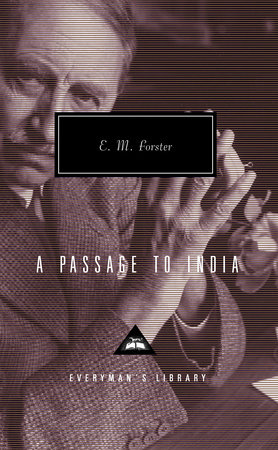E. M. Forster wrote the majority of his well known books before the First World War and although he became a member of the Bloomsbury Group, gave up writing novels altogether after the publication of A Passage to India in 1924, confining his literary output to critical works, travel writing, biography and short stories. The novel Maurice appeared posthumously in 1971, having been published under the supervision of Christopher Isherwood. It was begun after Forster completed Howard's End in 1910 and went through several drafts. It was influenced by the writer Edward Carpenter, a socialist and open homosexual, and had a homosexual theme, but Forster considered its subject matter too indelicate for publication in his own lifetime.
Forster's
literary career began in Edwardian times. He was writing at the same time as
John Galsworthy, Joseph Conrad, Thomas Hardy and Henry James, though Hardy had
turned from prose to poetry at the close of the previous century and James was
near the end of his productive life, publishing The Ambassadors in 1903 and The
Golden Bowl in 1904. Overshadowing all of them in popular fame at that time was
Rudyard Kipling, whose novel Kim (1902) earned him the Nobel Prize For Literature.
Kim is
considered to be Kipling's best book, while A Passage to India is often considered
to be Forster's best. Both novels are set in India and mark the shift in
attitude between Victorianism and what we perceive as Modernity: Kipling was in
the rear guard defending Empire, while Forster was in the van guard of
anti-imperialism. Forster's friend Lynton Strachey mocked the great and the
good of the late nineteenth century in Eminent Victorians (1918) and Forster
supported the Indian independence movement.
The period 1905-10 saw the appearance of four novels: Where Angels Fear to Tread (1905). The Longest Journey (1907). A Room With a View (1908) and Howard's End (1910). In these novels he developed the theme of what might nowadays be called cross-cultural communication. Forster's characters are restless and unfulfilled because they are trapped by their mode of life or shackled by an insular conservatism. He made a distinction between tourists and travellers in that a traveller is prepared to come into close contact with other cultures, linguistically and emotionally, while a tourist merely observes.
Forster visited
India for the first time in 1912-13 together with Syed Ross Masood who employed
him as a tutor. During the First World War he served in the Red Cross and was
stationed in Alexandria, Egypt, from 1915. Here he met the Greek poet
Constantine Cavafy and had a homosexual affair with an Egyptian tram driver. In
1921-22 Forster returned to India where he acted as private secretary to the
Maharajah of Dewas, this period giving him the material for A Passage to India.
The title
of the novel is taken from Walt Whitman, who wrote on the opening of the Suez
Canal in 1869 that it heralded the meeting of East and West. The story concerns
the visit of Adela Quested to Chandrapore in the company of Mrs Moore. They
accept an invitation from Dr Aziz, the local British surgeon's assistant, to
visit the mysterious Marabar Caves. During this visit Adela undergoes something
akin to a mystical experience while listening to the echo of the caves. Mrs
Moore almost faints and believes she has gone mad for a moment. Adela feels she
has been sexually assaulted and Aziz is consequently arrested for rape, yet at
the trial, Adela withdraws all charges and Aziz is freed. Exactly what happened
in the Marabar Caves remains a mystery.
The
philosopher G. E. Moore (1852-1933), a leading figure in the Bloomsbury Group,
influenced Forster's view on the importance of personal relationships to the
extent that Forster later claimed that, should he be faced with the choice
between betraying his country and betraying his friend, he hoped he would have
the guts to betray his country (Two Cheers for Democracy, 1951). Perhaps the
well-known quote from Howard's End, ‘only connect’, is also intended to stress
the importance of personal relationships, as well as the importance of making a
genuine Connection with the culture in which one lives -something which Adela
in A Passage to India is unable to do.
Forster
was concerned to address issues such as oppression, prejudice, intolerance and
misunderstanding wherever he found them, including in the culture of India
under British rule. But V. S. Naipaul, the Nobel Prize winner of Indian descent
born in Trinidad, claimed that Forster knew little of India beyond a few
middle-class Indians and the garden boys whom he wished to seduce.
Although
he gave up writing novels after A Passage to India, Forster continued to
produce essays and stories and was involved in P.E.N. - the international
association of Poets, Playwrights, Editors, Essayists and Novelists - over
which John Galsworthy presided. He also served as the first chairman of the
National Council for Civil Liberties and campaigned against the suppression of
Radclyff Hall's novel of lesbian love ‘The Well of Loneliness’ in 1928.
In the early 1930s the Bloomsbury Group came
under attack from the critic F. R. Leavis, writing in the Cambridge literary
magazine Scrutiny, Leavis accused the Bloomsbury set of being dilettante and
ivory tower artists, after which they lost fashionable appeal, though interest
in them re-emerged in the 1960s. Forster indeed belonged to a rarefied group of
intellectuals whose pursuits and lifestyles were made possible by private
incomes and this was at a time of economic depression when the spectres of
Communism and Fascism were stalking Europe and unemployment provoked hunger
marches.

No comments:
Post a Comment
looking forward your feedbacks in the comment box.